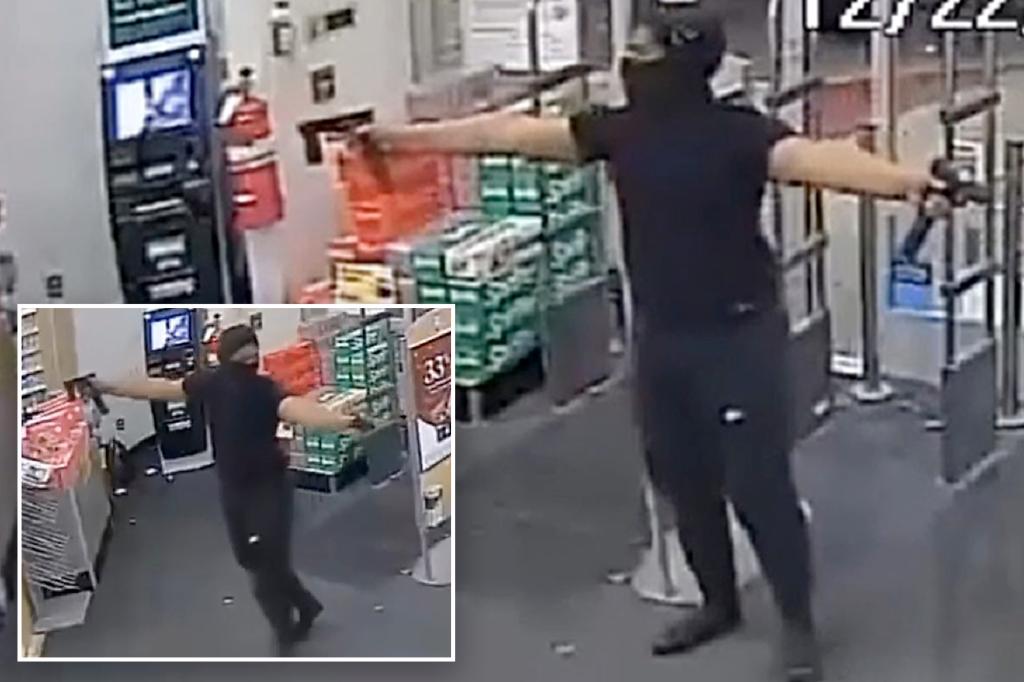The city of Memphis, Tennessee, grapples with a persistent and alarming crime problem, highlighted by a recent armed robbery at a Walgreens pharmacy. Surveillance footage captured a brazen thief brandishing two handguns, demanding cash from employees during the early morning hours. This incident underscores the city’s struggle with violent crime, a challenge reflected in its consistently high homicide rates. Memphis has unfortunately become a symbol of the national crisis of rising urban violence, consistently ranking among the most dangerous cities in the United States. This particular robbery serves as a microcosm of the larger issues plaguing the city, demanding immediate attention from law enforcement and policymakers. The incident also raises concerns about the safety and well-being of residents and business owners operating within the city.
Memphis’s crime statistics paint a grim picture of its public safety landscape. In 2024, the city recorded a staggering 202 homicides, a number surpassing almost every other city in the nation, according to the Major Cities Chiefs Association Violent Crime Survey. This alarming statistic placed Memphis second only to Los Angeles, which reported 226 homicides. The previous year, 2023, saw a similar trend, with Memphis and Los Angeles both experiencing 249 homicides, second only to Philadelphia’s 329. These figures demonstrate a troubling consistency in high homicide rates, placing Memphis among the deadliest cities in the country. This persistent violence underscores the urgent need for effective crime prevention and intervention strategies within the city.
Beyond the headline-grabbing homicide statistics, Memphis also struggles with other safety concerns. A comprehensive survey conducted by WalletHub, which assessed various factors contributing to overall safety, ranked Memphis at the very bottom of a list of 182 cities. This dismal ranking reflects the city’s vulnerability across several categories, including home safety, community safety, financial safety, and natural disaster risk. Memphis’s low ranking in these diverse areas indicates a systemic issue with safety and security, impacting residents’ quality of life and the city’s overall appeal. The WalletHub findings underscore the breadth and depth of Memphis’s safety challenges, extending beyond violent crime to encompass a broader range of concerns.
The specific breakdowns of Memphis’s safety rankings reveal the severity of its challenges. In financial safety, Memphis ranked second-to-last, only slightly better than Detroit. This points to significant economic hardship and financial insecurity among residents, which can contribute to criminal activity. In home and community safety, Memphis ranked 180th, barely edging out New Orleans and Baton Rouge, Louisiana. These rankings highlight residents’ vulnerability both within their homes and in their neighborhoods, creating an atmosphere of fear and insecurity. The city’s only relatively positive ranking came in the category of natural disasters, where it outperformed 81 other cities. This suggests that while Memphis faces significant challenges related to crime and financial security, it is relatively less vulnerable to natural calamities.
In stark contrast to Memphis’s struggles, other cities demonstrate significantly better safety profiles. Yonkers, New York, for example, ranked 6th overall in WalletHub’s safety survey, highlighting the disparity in safety levels across different urban areas. Yonkers earned particularly high marks for home and community safety, ranking 3rd in this category. This demonstrates that achieving a safe and secure environment is possible within urban settings, providing a counterpoint to Memphis’s struggles. The comparison between Memphis and cities like Yonkers underscores the need for Memphis to adopt and implement effective safety strategies to improve its standing.
The top five safest cities in WalletHub’s survey – South Burlington, Vermont; Casper, Wyoming; Warwick, Rhode Island; Burlington, Vermont; and Boise, Idaho – further emphasize the wide range in safety levels across the United States. These cities’ consistently high rankings across various safety categories suggest the presence of successful policies and practices that contribute to their overall security. Their performance serves as a benchmark for other cities striving to improve public safety and provides potential models for Memphis to examine and adapt. The contrasting safety profiles of these cities and Memphis highlight the importance of comprehensive strategies addressing the multifaceted nature of urban safety challenges.

